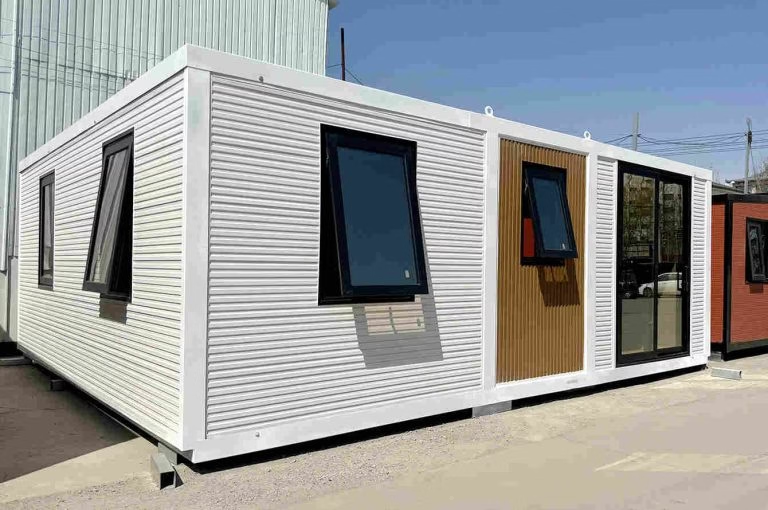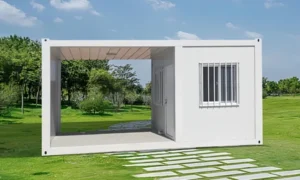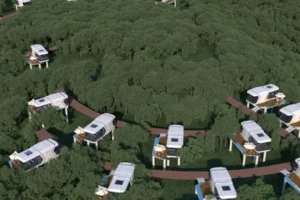In recent years, modular container houses have rapidly gained attention as innovative, cost-effective, and sustainable solutions for commercial spaces. Originally designed for shipping and logistics, these containers have been cleverly repurposed into versatile architectural units that are transforming the way businesses think about space, design, and functionality.
Why Modular Container Houses?
Modular container houses offer several unique advantages that make them an ideal choice for commercial use:
-
Cost Efficiency: Traditional construction can be expensive and time-consuming. Modular containers reduce costs by minimizing labor, construction time, and material waste. Pre-fabricated off-site, they arrive ready to install, accelerating project timelines.
-
Flexibility and Scalability: Businesses can stack and arrange container modules in numerous configurations, easily scaling spaces up or down to meet their needs. This adaptability suits a variety of commercial applications — from pop-up retail shops and cafes to offices and showrooms.
-
Durability and Sustainability: Shipping containers, made of high-strength steel, withstand harsh environments and deliver exceptional durability. By repurposing these containers, companies actively support sustainability efforts and reduce material waste.
-
Modern Aesthetics: The industrial look of container architecture has become trendy and appealing in urban and creative commercial settings. With thoughtful design, these structures can blend style with functionality, offering visually striking spaces that attract customers.
Popular Commercial Uses
-
Retail Spaces: Pop-up stores and small boutiques benefit from the quick deployment and mobility of container units. Their compact size suits high-traffic urban areas where traditional real estate is costly.
-
Offices and Co-working Spaces: Businesses are increasingly using modular containers for office expansion or temporary workspaces. Their customizable interiors can include all necessary amenities for a productive environment.
-
Cafes and Restaurants: Many entrepreneurs have embraced container cafes for their unique look and fast installation, allowing quick market entry and the flexibility to relocate if needed.
-
Event Spaces:You can configure containers into exhibition booths, ticket counters, or temporary venues, offering practical and attractive solutions for festivals and fairs.
Challenges and Considerations
Despite their advantages, modular container houses have some limitations. Proper insulation and ventilation are critical to ensure comfort, especially in extreme climates. Compliance with local building codes and zoning laws must be carefully navigated. Additionally, planning for utilities like plumbing and electricity requires thoughtful design and integration.
The Future Outlook
As urban areas grow denser and sustainability gains importance, modular container houses actively revolutionize commercial real estate. Designers, material scientists, and technologists continuously innovate, expanding their potential and making container architecture a mainstream choice for smart, flexible, and eco-friendly commercial spaces.



